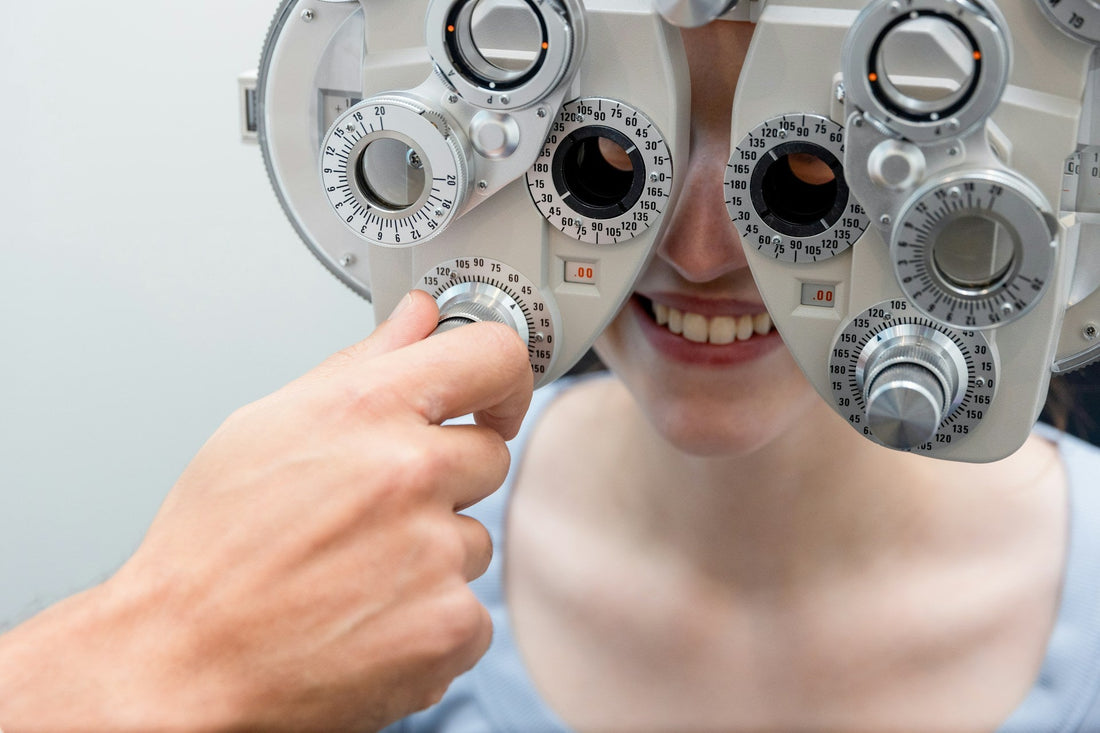
What Should I Major in to Become an Optometrist in 2025?
Share
Optometry is a field of healthcare that focuses specifically on vision and the eyes, however, optometry is not usually something you can major in as an undergraduate. As part of their day-to-day work, an optometrist will example patients’ eyesight for vision problems and diseases like nearsightedness, farsightedness, or cataracts. As we can see, it’s very different from the typical idea of working in the medical field.
For students aspiring to become an optometrist, what should they major in to set themselves up for success? In this article, we will explore the different career pathways to take in order to become an optometrist in Canada.
What Should You Major In for Optometry in 2025?
Technically, you can get into Optometry school with any major, as long as you have the required science credits. However, it’s wise to choose an undergraduate degree that closely aligns with what’s studied in optometry. This will ensure you’re prepared to meet the demands of an optometry graduate program. Here are some of the best undergraduate degree options to prepare yourself for optometry school:

-
Biology is the study of living organisms and a core field of science. Biologists study the structure, function, growth, and evolution of organisms over time, from microscopic organisms to animals, plants, and humans. Majoring in biology is an excellent choice for students looking to learn the basis of optometry while also understanding other aspects of biology outside of human vision.
-
Biochemistry would be the top choice for undergraduates looking to focus solely on optometry. This field of study heavily influences the optometry field, helping optometrists understand the molecular and cellular structure of the eye and how these bodily functions work.
-
Health Sciences studies how the human body functions to empower the diagnosis and treatment of serious issues affecting the body. This field of study touches on biochemistry topics, as well as medicine, nursing, nutrition, health policy, and mental health. This is a great choice for students passionate about patient care/outcomes and willingly to explore avenues outside of optometry.
If you’re a Kitchener-Waterloo student looking to attend University of Waterloo, University of Waterloo has a Optometry & Vision Science program for people who have already completed an undergraduate degree. As with many optometry programs, there are other specific prerequisites needed for acceptance, such as a number of credits in biology or biomedical science.
Learn more: University of Waterloo’s Optometry & Vision Science Program
Do I Need to Go to University to Become an Optometrist?
Yes, you do need to go to university to become an Optometrist in 2025. Aspiring optometrists are required to complete a science (or sometimes pre-med) degree in and earn a Bachelor of Science to enter a Doctor of Optometry program in Canada.
Standard Career Path of an Optometrist in Canada
-
Start with an Undergraduate Degree: In Canada, students must complete at least three years of undergraduate education leading up to optometry school. There are various 3-year programs you can earn a degree from. A 4-year program may be a better choice if you’re looking to strengthen your application.
-
Apply for Optometry School: After completing your undergraduate studies, it’s time to apply to a specialized optometry program. Aspiring optometrists must prepare for the Optometry Admission Test (OAT), a standardized examination that assesses academic ability and scientific knowledge. Achieving a competitive score is crucial for admission into an accredited optometry program.
-
Attend an Accredited Optometry School: In Canada, prospective optometrists must complete a Doctor of Optometry (OD) program. Several institutions across North America offer accredited optometry programs, including the University of Waterloo in Ontario, which houses Canada's only English-language optometry school. The OD program is typically four years long and includes a combination of classroom instruction, laboratory work, and clinical training.
-
Obtain Optometry License: The licensing process involves passing a series of examinations administered by the Optometry Examining Board of Canada (OEBC). The OEBC exams assess clinical knowledge and skills, ensuring that candidates are prepared to provide high-quality eye care.
-
Register with a Regulatory Body in Ontario: New optometrists must register with the regulatory body in the province or territory where they intend to practice. Each province has its own regulatory college that oversees the practice of optometry and ensures adherence to professional standards.
Essential Traits of an Optometrist
-
Attention to detail
-
Analytical skills
-
Manual dexterity
-
Communication skills
-
Compassion
-
Patience
-
Problem-solving skills
How to Prepare for a Career as an Optometrist
As a high school student, are you ready to jumpstart your career in optometry? Set yourself up for success academically by taking relevant science courses like biology, chemistry, and health. If you’re able to achieve excellent grades in these high school courses, then you’ll know for sure that you’re ready to take on the hard-work and dedication required for studying optometry.
If you’re an aspiring optometrist who:
-
Has below average grades in science
-
Has not taken enough science courses
-
Doesn’t feel prepared for university studies
You’ve come to the right place! At Pathways Education Services, we deliver specialized learning programs and opportunities for students to easily enhance their academic profile and knowledge. It’s never too late to be better!
Get started with an Academic Review! We’ll help you choose the right education path to achieve your goals, and give you guidance and resources on how to get there.
